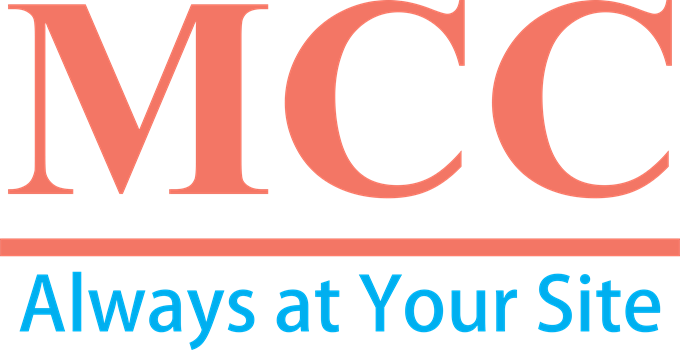The Management of MCC. is committed to provide a safe and secure work environment to all MCC. employees, who are bound to observe and adhere to this policy.
Personal safety and protection of property are the direct responsibility of MCC employees. Safety Awareness and Loss Prevention program are the means to improve efficient operations to maintain production ratio and international quality standards along with cost�effectiveness.
Safety on the job in any given project is our principal motive. No operation is so important that it must be done in a manner which permits undue hazards to personnel or property.Elimination of recognized safety hazards and other potential losses will be given top priority by the concerned Manager.
Safety has always stayed as our prime objective. During selection process, MCC. will make sure that selected candidates already have enough safety
awareness on the job, failing which; appropriate safety orientation and comprehensive training sessions will be organized.
Project Site Safety Orientation:
MCC. employees, regardless of their prior experience will attend the MCC Safety Induction Course before being issued with a permanent site identity pass, to ensure his full awareness of existing / relevant safety requirements, potential hazards, rules and regulations associated with the job inside the plant.
The main topic of such induction course will include, but is not limited to:
- Personnel Protective Equipment (PPE) i.e. safety glasses, safety shoes, hard hats, ear plugs, full body harness (as required), safety belts, etc.
- Medical Evaluation Procedures.
- Specific Emergency Alarms and Safe Assembly Points in the Plant.
- Traffic Safety.
- Work Permit Procedures.
- Smoking Policy.
- Camp Discipline Procedures.
- Housekeeping.
- General Safety Rules.
General Safety Instruction (Prior to Mobilization)
- This safety awareness process allows consistent communication between the frontline Supervisor and the Craftsmen on every task to be performed. All relevant safety aspects of the job are clarified through discussion / meeting by the Foreman or Supervisor with his crew before job commences on “every new or extended task” basis. This helps us to maintain an effective accident- prevention program.
- Safety instruction will be conducted by the foreman/supervisor to his crew preferably at the actual work location, to provide a clear view of the task to be performed before it commends.
Weekly Safety Tool Box Meeting:
A documented Safety Tool Box Meeting will be conducted at least once in a week preferably on the last day, by the line supervisors and safety personnel on the project. Major topics in this weekly Safety Tool Box Meeting will include, but is not limited to:
- Previous week’s safety hazards (if any) and the deficiencies observed requiring corrective/preventive measures.
- Incurred accidents, incidents and injury including near-misses (if any).
- Incoming activities requiring advance information on safety.
- Plant safety and security requirements.
- Management personnel will participate in the Weekly Safety.
- Tool Box meeting to demonstrate their genuine concern and involvement in safety.
Project Safety Management Meeting MCC CONRACTING. Site coordinator or his authorized representative and the Safety Officer will attend the Safety Management Meeting as may be decided by the client’s safety team, in order to discuss and coordinate safety related issues.
Safety Training:
Safety Training that will be arranged on the project to enhance the skills and safety awareness of site employees will include, but not limited to the following:
- Fire Watch / Fire Extinguisher.
- Entry attendant & Training SCBA.
- Basic life support for safety, medical and selected site performance.
- Rigging Safety Training.
- Hazard Communication, MSDS Training.
- Safety Lockout and Tag Out.
- Crane Safety Training.
- Scaffolding Safety.
- Work Permit procedures.
Every employee performing an arranged specific task or who is operating specific equipment such as Machinist / Welder / NDT will be given appropriate training by a competent person. Of course, as a pre-cautionary measure, during the interview itself enough care will be taken to avoid inexperience of industrial safety.
Safety Visualization:
Visual aids such as notice board, poster, signs and pictograph will be utilized to the greatest possible extent to enhance safety awareness of site personnel.
 +971 42628 666
+971 42628 666
